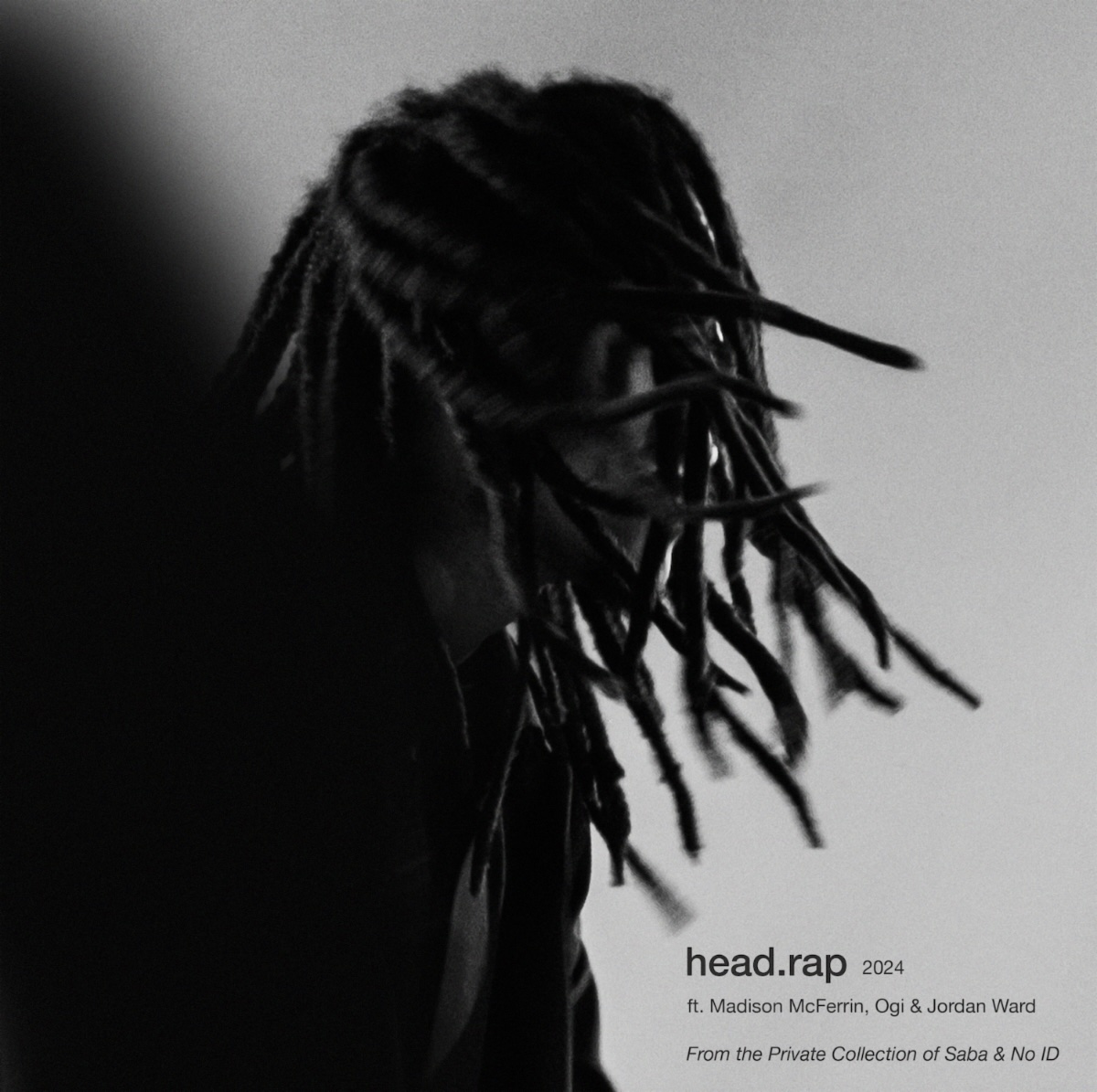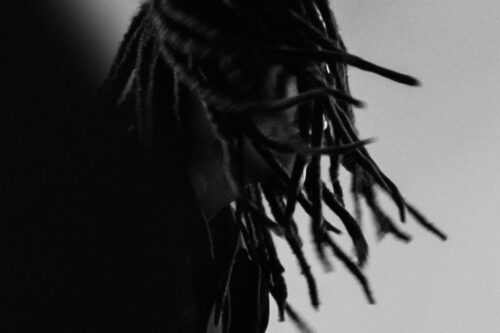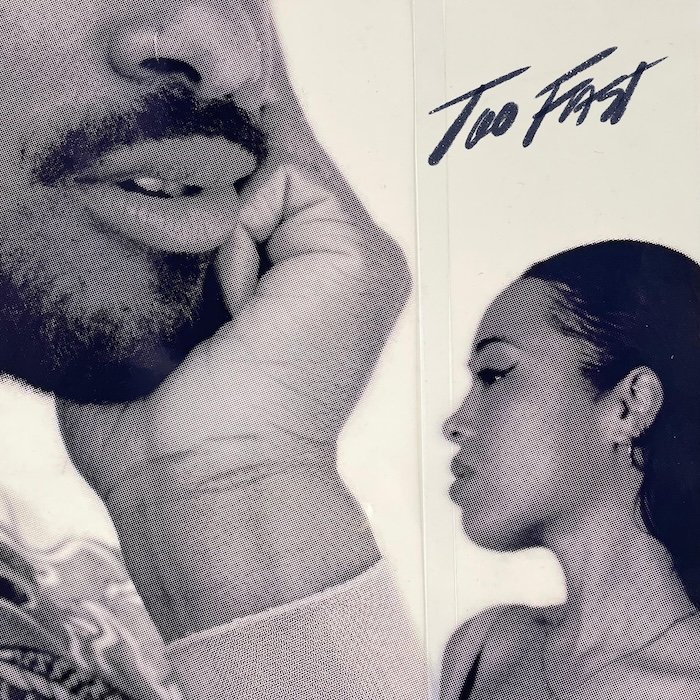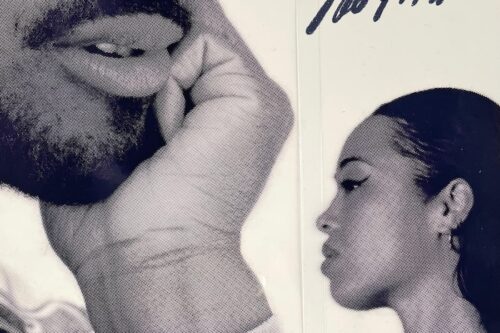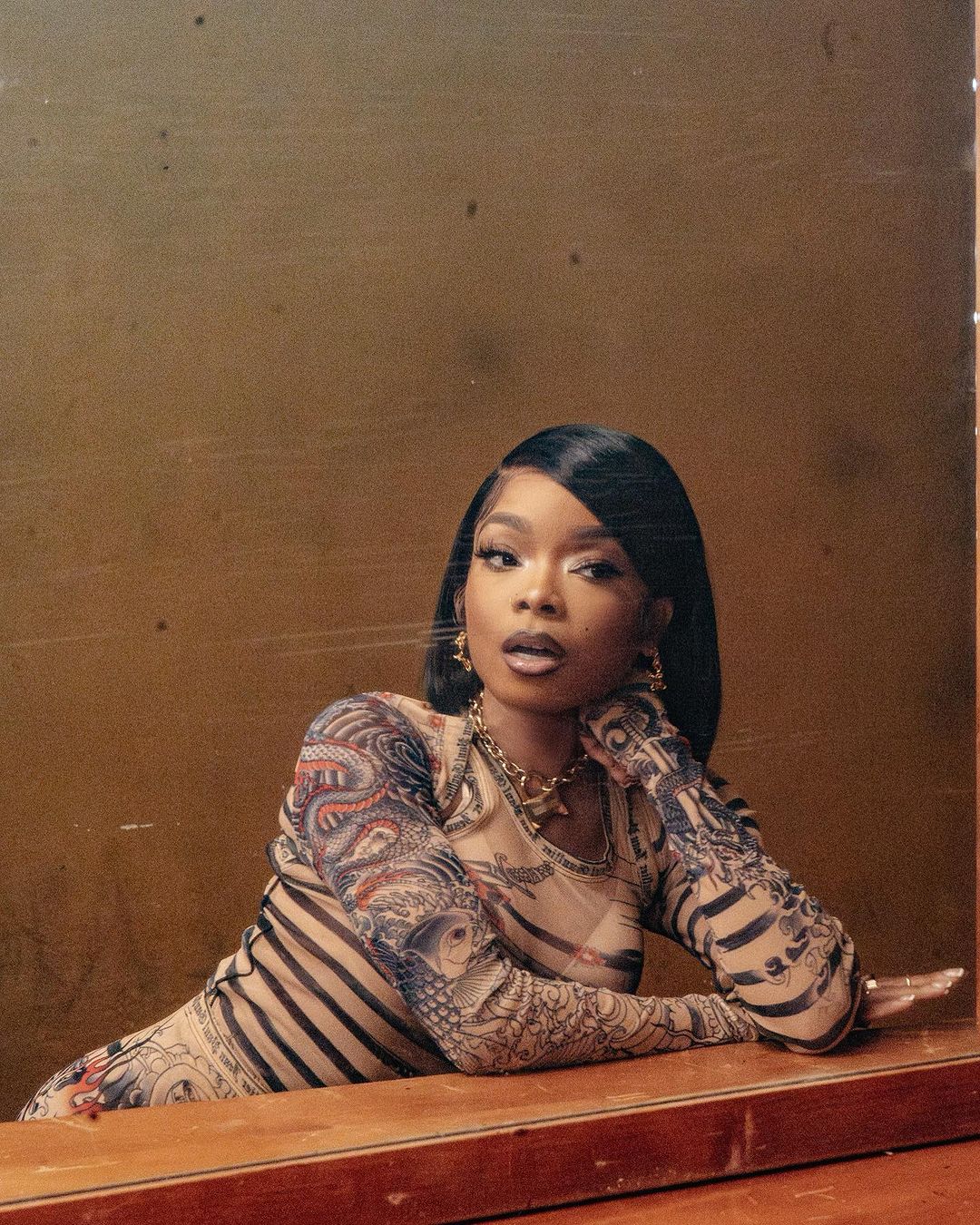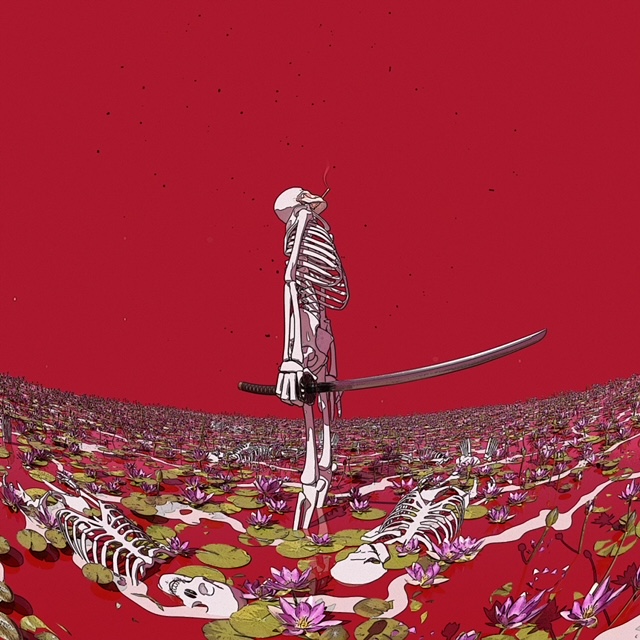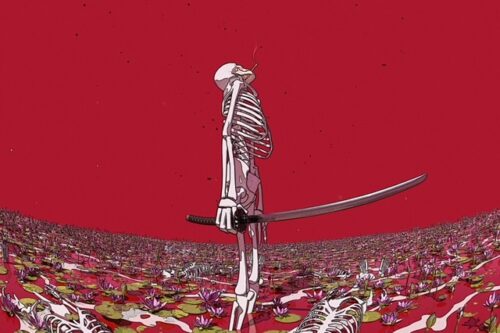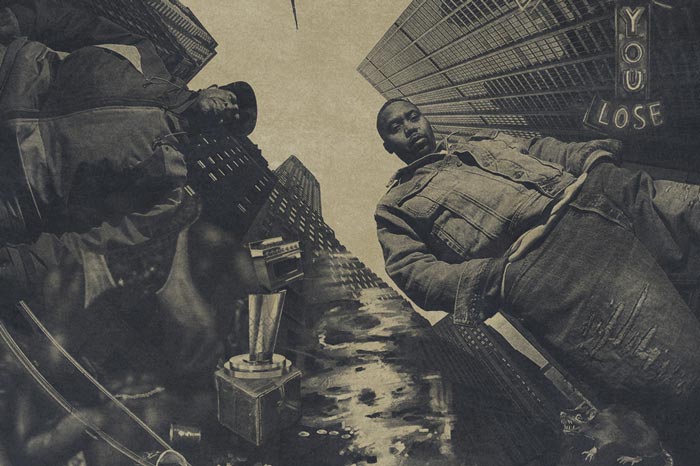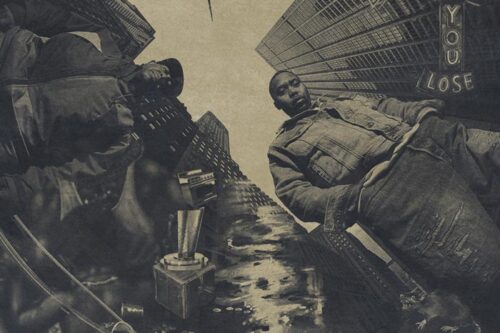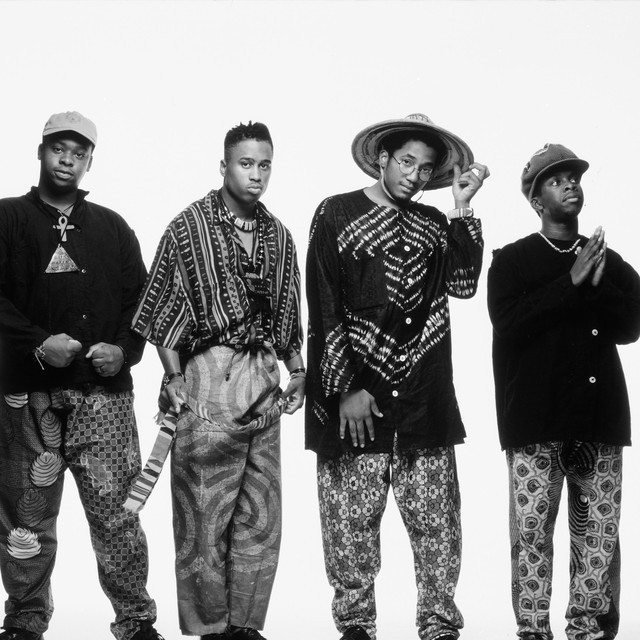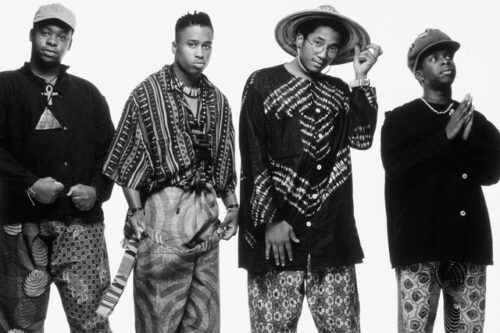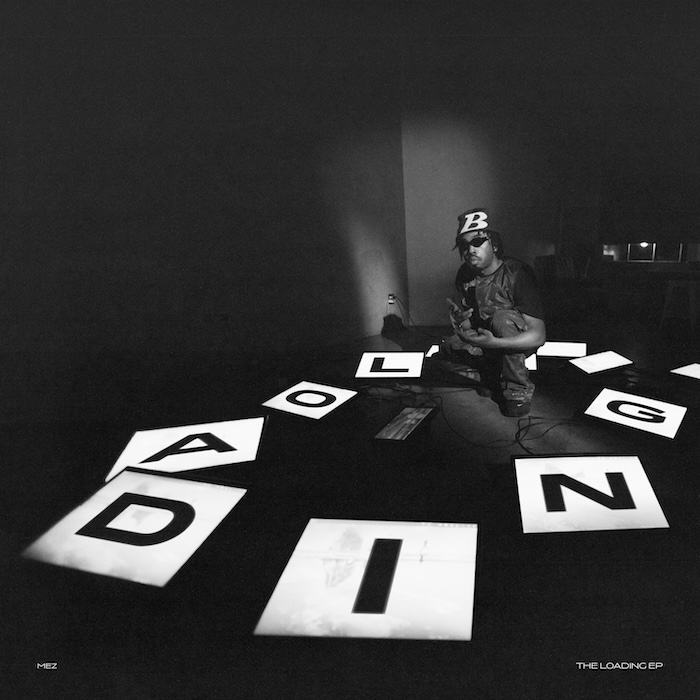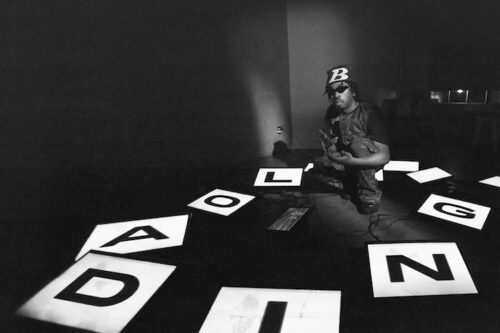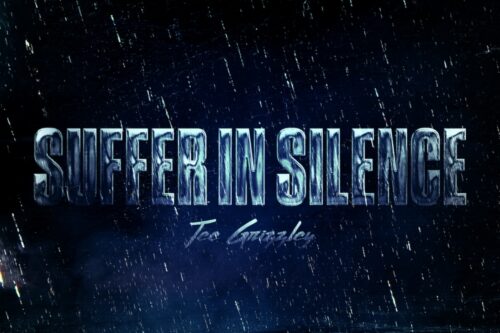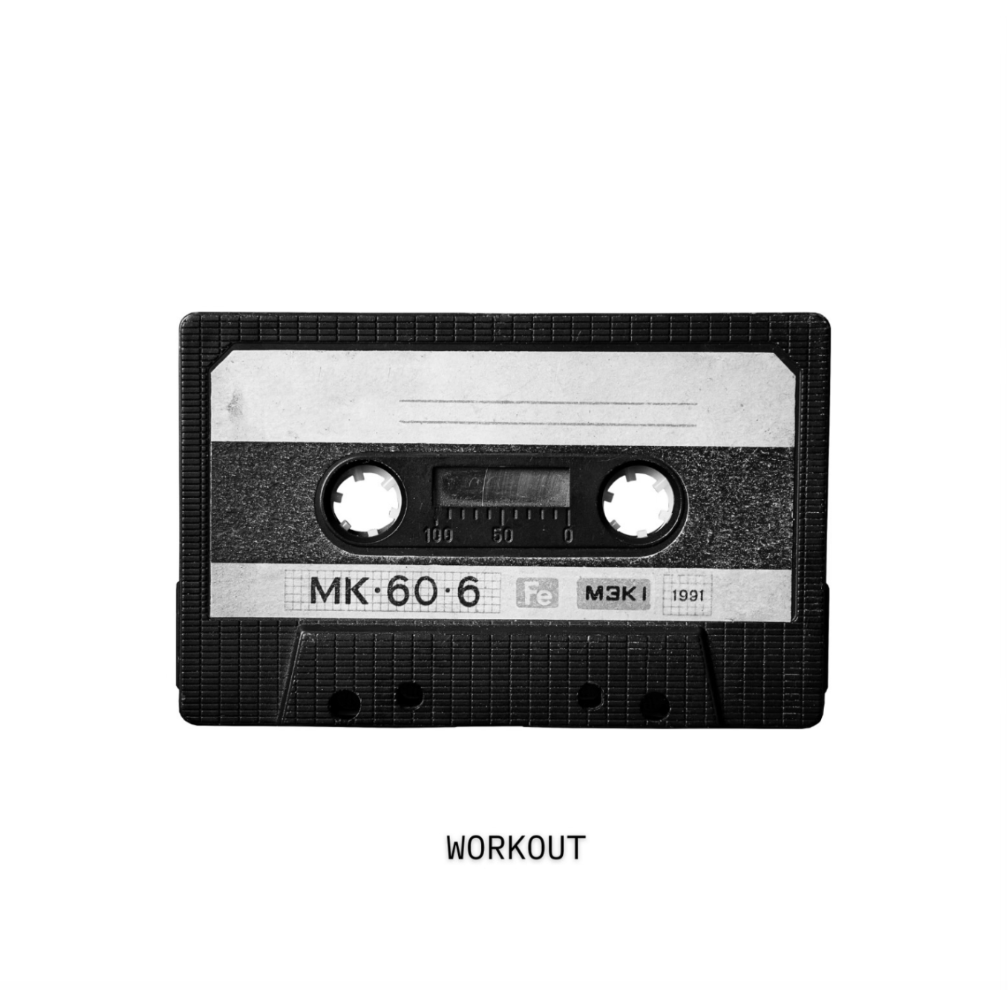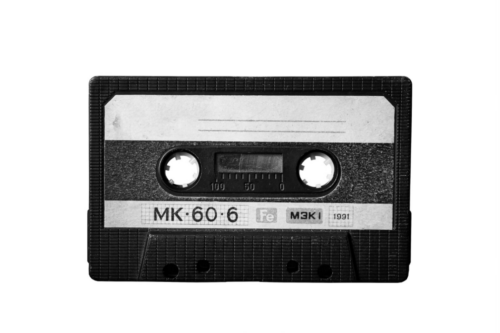
It’s hard to believe that two decades have passed since I pulled my pennies together to purchase Nas’ Illmatic on cassette. I’m about to date myself by documenting how it all went down but it’s imperative to explain how Nas changed my life on April 19, 1994 and began a frustrating love and hate relationship that has lasted 20 years.
Before there were blogs, the only way to get unreleased music was by little cassettes that DJs put together with a variety of songs that was mixed together. Not this nonsense that you find online mistakenly called “mixtapes.” If you had a mixtape, it was similar to being in possession of a sacred scroll. Considering I lived in Las Vegas, the fact that my uncle used to bring me mixtapes straight off of 125th St. in New York made me a music God during my adolescence. Ron G and Doo Wop mixtapes on black Maxell cassettes overflowed my drawer with early music from Wu Tang Clan, Jay Z, Big L, Royal Flush, Mobb Deep and others. But it was this Main Source song that blew my mind.
“Live at the Barbeque” featured this kid named Nasty Nas that was just spewing poetic recklessness on the mic that I had never heard before. As soon as I heard “Verbal assassin, my architect pleases/When I was 12, I went to hell for snuffing Jesus” I lost my fucking mind. “Who says that?” I thought aloud. As a kid just entering his teenage years and looked to artists like Chuck D and KRS One to elevate my mind state, it’s safe to say that hip-hop did more parenting than my actual mother and father did. The influence was heavy but Chuck D and KRS One were very straight forward with their rhyming. Aside from Rakim, I hadn’t really heard anything that poetic and abrasive all at once. But I was hooked. I bought every rap magazine I could find that had information on this Nasty Nas fellow. I had my uncle scoop up the Zebrahead soundtrack just so I could play “Halftime” over and over again until Illmatic dropped.
By the way, the Illmatic is easily the most amazing name for a debut album in the history of forever-ness. I never heard the word before and haven’t heard anything like it since. But I digress…
When I picked up the April 1994 issue of The Source and read Shortie’s review of Illmatic, my anticipation reached parts unknown (I would meet Shortie, who you know today as Miss Info, during my tenure at BET and, to this day, she doesn’t know that I worship the ground she walks on). A 5-mic review was unheard of back then when The Source actually meant something (I have since had the pleasure of conversing for hours with Jonathan Shecter in person about Illmatic and his time running the mag). Hell, it was the hip-hop Bible and I took Shortie’s words like the gospel. Those three weeks until Illmatic dropped moved slower than a countdown to Christmas (and we all know how slow time ticked by when you were a kid). I must have annoyed the hell out of cashier at the Warehouse with my hourly calls that week in hopes that they got a copy they could sell me early. But April 19th came and I ran from my house to the mall and tossed my quarters and crumpled dollars onto the counter like a real G would and George Jefferson strolled out that bitch. Three steps later the plastic was shredded off the cassette and the tape was popped into my Walkman.
That twenty-minute walk to my house was the most glorious walk I ever had as a 15-year-old. Oh yeah, I definitely ditched school that day just so I could consume Illmatic in all of its poetic beauty. The “Wildstyle” sample on The Genesis set the tone and Nas blew the door off the hinges with “N.Y. State of Mind.” You’ll be hard pressed to find an opening combination as potent as “N.Y. State of Mind,” “Life’s A Bitch” and “The World Is Yours.” To hear three wickedly written songs produced by DJ Premier, L.E.S. and Pete Rock in a fifteen minute span was completely unheard of back in 1994. You’ve got to understand that shit like that just didn’t take place before Nas and forced every emcee to not only reconsider their approach to rhyming, but how to cultivate the soundscape of an album.

Keep in mind, I lived in Las Vegas and the city swore it was the illegitimate child California tried to forget about. A Death Row Records album pumped out of every speaker within a 5-mile radius. It was either that or Too $hort, MC Eiht, DJ Quik or, hell, even a Bloods & Crips album that infiltrated my ears. So when I went to school the next day and sat at the lunch table debating why Nas was far superior than anything the West Coast had put together, you can see why the older kids dismissed me with the swiftness. But I was persistent, kicking Nas’ rhymes that I wrote down on my legal pad and then explaining them to the lunch table like class was in session.
Illmatic was my everything and my friends’ resistances to it only made me preach harder.
To this day, Illmatic is my most purchased album ever. I’ve bought the cassette/CD at least 9 times. 3 times my tape popped, I had at least two CDs stolen and I lost, misplaced, broke, scratched or simply played the other four copies until they died.
I just knew that Nas would be the greatest emcee to ever exist in the universe…until he wasn’t. And why he wasn’t is the exact reason why this crazy love/hate relationship I have with him exists to this day.
And the hate, isn’t so much that I disliked Nas. I hated that Nas wouldn’t be as great as I thought he could have been because I felt that he conformed so much to sell records. And it wasn’t because he wanted to, but because he had to. If there was any such thing as being too far ahead of the curve to the point it hurts you, Nas was it. Although Illmatic is considered to be one of the greatest hip-hop albums of all-time, it sure didn’t sell like it. Nas’ lyrical eloquence that existed as scripture which documented Queensbridge culture was simply too jarring for many to adjust to. It was like bringing Malcolm X to an Aerosmith bikini beach party. It just wasn’t welcome at the time.
To go from “Bitches ain’t shit but hoes and tricks” to “Wisdom be leaking out my grapefruit, troop I dominate break loops, giving mics men-e-strual cycles” is like eating 12 bags of Skittles and then trying to ingest a glorious filet mignon. Your body is going to reject it at first. And people did reject it. Week one sales were a wretched 59,000. By comparison, Snoop Doggy Dogg’s Doggystyle sold 802,858 copies in its first week when it dropped on November 23, 1993. The Murder Was The Case soundtrack pushed 329,000 first week copies when it released in October 1994. As incredible as Illmatic was, it’s abysmal sales prompted a shift that would forever haunt Nasir Jones. And I not only hated it, I despised it.

Instead of sticking to the script, Nas’ second album needed to have commercial appeal. At the same time, Nas began to adopt a Mafioso mentality that was prevalent on albums like Raekwon’s Only Built 4 Cuban Linx and Jay Z’s Reasonable Doubt. It was a conscious move by Nas to fit into his surroundings. As much as I loved It Was Written, I disliked what Nas’ environment made him commit to psychologically. The moment my homies took to “If I Ruled The World” because of its Whodini sample and Lauryn Hill hook (and that damn “Street Dreams” remix with Robert Sylvester Kelly), I knew bad things were to come. They didn’t surface on It Was Written though, that would be saved for I Am and Nastradamus, which were clearly infected by the money making jiggy rap bug and reduced Nas from secluded street poet to just another exceptional rapper in the cypher.
You know how they say that teams play to the level of their competition? That, to me, was Nas. If he played too well, he wouldn’t be invited to the party. But if he lowered his own bar, he was more than welcome to rock a fur coat with those that couldn’t touch him intellectually.
Nas’ “Nas Is Like” will go down in history as the biggest bait and switch my ears have ever dealt with. Just when I thought Nas had gone back to his roots after proving he could sell a few million records, I found out that “Nas Is Like” wasn’t the rule, it was the exception and I Am was the evidence that the old Nas wasn’t coming back anytime soon. I hated what Nas had become. I cringed when I listened to the double time rhymes of “Big Things” and wanted to punch a puppy in the face when I saw the “Hate Me Now” video.
I felt let down because Nas was better than the music he was making. Going from Rap God to mere mortal who raps exceptionally well is rather disappointing. Nastradamous was the pinnacle of my frustrations. The brilliance of “Project Window” (which was overproduced compared to a stripped down version I had on a mixtape) juxtaposed next to “You Owe Me” and the putrid “Big Girl” had me clutching my heart and yelling “This is The Big One, Elizabeth” like I was Fred Sanford. It was like watching Michael Jordan become the league leader in assists just so he could feel like a team player. But what’s the point of winning some trivial short-term battle when you are losing a war with history?
It wasn’t until Jay Z gut punched his ass that he realized that being anyone else but Nas was unacceptable. It was a case of the student idolizing the teacher until he realized that the teacher impersonated him. Not to say that Jay Z was a student, but you get the point. Nas needed a reality check and Jay Z gave it to him in the harshest way possible. Rather than spit a bevy of insults as Nas later did on “Ether,” Jay Z just gave him raw truth on “Takeover” that everybody shrugged their shoulders, turned to their neighbor and said “you know, Jay Z’s right.” For that reason, I always thought Jay Z won the battle because he got what he wanted out of Nas, to shred the conformist mainstream image and reclaim his lofty perch as the supreme street poet.
I loved what Stillmatic represented for Nas. Songs such as “2nd Childhood” and “Rewind” found Nas being the brilliant versifier that we all knew that he could be. The song title “Destory & Rebuild” personified everything that Nas was doing.
Unfortunately, Nas proved to have another ailment surface that I like to call “beat retarded.”
I swear, I’m not sure what happened, but Nas’ ear for production had gone deaf. If Nas had Rick Ross’ ear from production, he would have murdered the game, but he didn’t. Nas did, however, prove that he was still head and shoulders above the rest from a lyrical standpoint.

The next stretch of albums (God’s Son, Street’s Disciple, Hip Hop Is Dead and Untitled) were so gotdamn uneven sonically that they were hard to digest. Nas’ rhymes were on point, but the beats weren’t holding up their end of the bargain. I begged and pleaded to whoever controlled the hip-hop universe that the Nas & DJ Premier album that had been teased since the duo appeared on the cover of Scratch Magazine would come to fruition. But it didn’t. And I hated that. However, I loved that Nas had gone back to the cinematic narrator he once was rather than kicking garbage girlie rhymes on “Oochie Wallie.”
However, as time passed, I hated that Nas never became a mogul like Jay Z or had several successful business ventures like his other hip hop peers. Nas deserved more than what he had simply off of the strength of Illmatic. I always thought that if Jay Z was meant to become the first rapper to play the Las Vegas Strip, Nas should be the one reopening the Moulin Rouge and performing his catalog regularly. In my eyes, Nas should have never had to sign with Jay Z. But music is a business and Nas just wasn’t as focused on the business aspect of the game like Jay was. Nas was, first and foremost, a poet. He was a unique blend of Gil Scott Heron and The Last Poets who took what Rakim started and elevated it to another stratosphere. Those kinds of artists never end up being rich. Usually, they end up broke, suffering from a drug habit or a disturbing combination of both.
And I realized that is what I hated more than anything else: Nas being a talented poet would never be enough to survive in this game. It’s the very reason why Spike Lee has never won an Oscar and is recognized as one of the greatest directors of our time. Being true to yourself will never give you the mainstream notoriety you believe you deserve. You have to conform a little bit if you want people to listen, watch and accept what you have to say. Take this as you want, Do The Right Thing was Spike Lee’s Illmatic and achieved all the critical acclaim while opening the door for Spike to achieve crossover appeal. But the difference between Spike and Nas was that Spike has always been comfortable in his own skin. Nas never came off that way during his I Am and Nastradamous phases.
Seeing Nas on the cover of Life is Good with the green wedding dress Kelis wore made me realize how much Nas had been through but was still standing when others were long gone.
Today, as Nas celebrates the 20th anniversary of Illmatic, I am proud to see him standing tall. I am happy to see that he has invested in multiple ventures including Mass Appeal Magazine while still keeping his ear to the street and working with emcees like Fashawn who idolized his same lyrical principals. The fact that he’s still relevant is a testament to his legendary status.
Furthermore, if Nas does nothing else, Illmatic will live on. It’s the single event that changed how I looked at the music industry and the first sign that I wanted to become a journalist who documented the culture. There have been millions of people who could kick a rhyme or two, but none will ever make an album as brilliantly concise, poignant and significant in hip-hop as Illmatic.
Nobody.
Some will criticize my personal criticisms of Nas while others will flat out say “that shit was too long.” Others will take from this writing what they will and recall how Illmatic made them feel while agreeing with my sentiments or simply finding a few strands of relatable truths.
But, regardless of how you feel about me venting my personal views, I’m still just a critic, who the hell am I?

